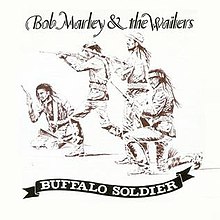
Uprising is the twelfth studio album by Bob Marley and the Wailers and the final studio album released during Marley's lifetime. Released on 10 June 1980, the album is one of Marley's most directly religious, with nearly every song referencing his Rastafarian beliefs, culminating in the acoustic recording of "Redemption Song".

Exodus is the ninth studio album by Jamaican reggae band Bob Marley and the Wailers, first released in June 1977 through Island Records, following Rastaman Vibration (1976). The album's production has been characterized as laid-back with pulsating bass beats and an emphasis on piano, trumpet and guitar. Unlike previous albums from the band, Exodus thematically moves away from cryptic story-telling; instead it revolves around themes of change, religious politics, and sexuality. The album is split into two halves: the first half revolves around religious politics, while the second half is focused on themes of making love and keeping faith.
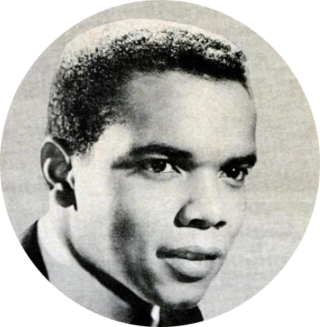
John Lester Nash Jr. was an American singer, best known in the United States for his 1972 hit "I Can See Clearly Now". Primarily a reggae and pop singer, he was one of the first non-Jamaican artists to record reggae music in Kingston.

Survival is the eleventh studio album by Bob Marley and the Wailers, released in 1979.

Confrontation is the thirteenth and final studio album by Bob Marley & the Wailers and the only one to be released posthumously in May 1983, two years after Marley's death. The songs were compiled from unreleased material and singles recorded during Marley's lifetime. Many of the tracks were built up from demos, most notably "Jump Nyabinghi" where vocals from the I-Threes were added, which were not there when Marley released the song as a dubplate in 1979. In addition the harmony vocals on "Blackman Redemption" and "Rastaman Live Up" are performed by the I-Threes in order to give the album a consistent sound – on the original single versions they are performed by the Meditations. The most famous track on the album is "Buffalo Soldier".

Kaya is the tenth studio album by the Jamaican band Bob Marley and the Wailers, released in 1978. The album consists of tracks recorded alongside those released on the Exodus album. It was produced by the band.
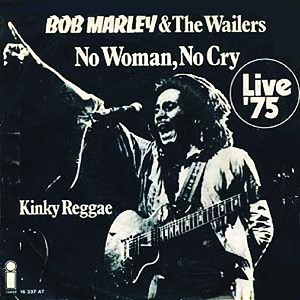
"No Woman, No Cry" is a reggae song by Bob Marley and the Wailers. The song was recorded in 1974 and released on the studio album Natty Dread.
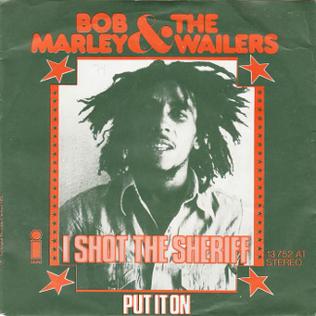
"I Shot the Sheriff" is a song written by Jamaican reggae musician Bob Marley and released in 1973 with his band the Wailers.
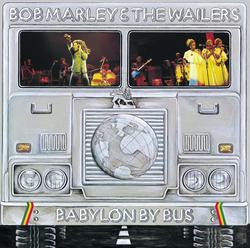
Babylon by Bus is a live album released by Bob Marley and the Wailers in 1978. The tracks on this album are considered, with two exceptions, to be from the Pavillon de Paris concerts over 3 nights, 25–27 June 1978, during the Kaya Tour, though there are discrepancies in the track listing.

Legend is a compilation album by Bob Marley and the Wailers. It was released on 7 May 1984 by Island Records. It is a greatest hits collection of singles in its original vinyl format and is the best-selling reggae album of all-time, with over 12 million sold in the US, over 3.3 million in the UK and an estimated 25 million copies sold globally. In 2003, the album was ranked number 46 in Rolling Stone magazine's list of the "500 Greatest Albums of All Time", maintaining the ranking in a 2012 revised list, but dropping to number 48 in the 2020 revised list.
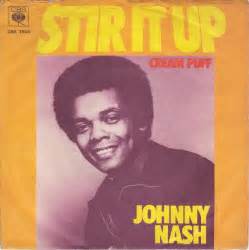
"Stir It Up" is a song composed by Bob Marley in 1967 and first recorded by the group Bob Marley and the Wailers that year and issued as a single. It was later covered by American singer Johnny Nash on his 1972 album I Can See Clearly Now. The following year, Marley and the Wailers re-recorded the song for their album Catch a Fire.

Most of Bob Marley's early music was recorded with Peter Tosh and Bunny Wailer, who together with Marley were the most prominent members of the Wailers. In 1972, the Wailers had their first hit outside Jamaica when Johnny Nash covered their song "Stir It Up", which became a UK hit. The 1973 album Catch a Fire was released worldwide, and sold well. It was followed by Burnin', which included the song "I Shot the Sheriff". Eric Clapton's cover of the song became a hit in 1974.

Nerrukku Ner is a 1997 Indian Tamil-language romantic action thriller film written and directed by Vasanth and produced by Mani Ratnam. The film stars Vijay and Suriya in the lead roles, while Simran, Kausalya, Raghuvaran, Shanthi Krishna, Baby Jennifer, Karan, Vivek, Manivannan and Prakash Raj play supporting roles. This is the debut film of Suriya, the eldest son of actor Sivakumar. Deva and K. V. Anand handled the music and cinematography respectively.
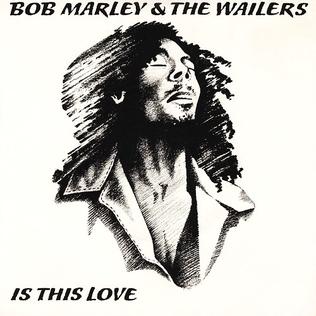
"Is This Love" is a song by Bob Marley and the Wailers, released on their 1978 album Kaya. The song became one of the best-known Marley songs and was part of the Legend compilation. It peaked at number 9 in the UK charts upon its release in 1978. A live rendition of the song can be found on the Babylon by Bus live album from Paris in 1978.
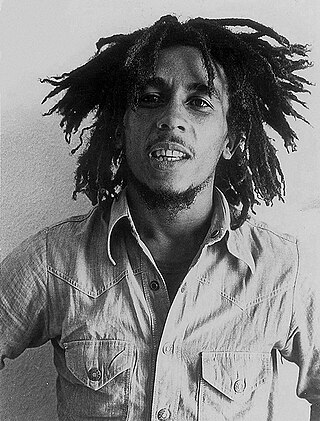
Robert Nesta Marley was a Jamaican reggae singer, guitarist, and songwriter. Considered one of the pioneers of the genre, Marley fused elements of reggae, ska, and rocksteady in his music and was renowned for his distinctive vocal and songwriting style. Marley's contribution to music increased the visibility of Jamaican music worldwide and made him a global figure in popular culture. Over the course of his career, Marley became known as a Rastafarian icon, and he infused his music with a sense of spirituality. He is also considered a global symbol of Jamaican music and culture and identity, and was controversial in his outspoken support for democratic social reforms. He also supported legalisation of cannabis, and advocated for Pan-Africanism. In 1976, Marley survived an assassination attempt in his home, which was believed to be politically motivated.

"Could You Be Loved" is a 1980 song by Jamaican reggae band Bob Marley and the Wailers. It was released as the first single from their twelfth and last album, Uprising (1980), and is also included on their greatest-hits album Legend (1984). It was written in 1979 on an aeroplane while The Wailers were experimenting on guitar. In the middle of the song, background singers quote a verse from Bob Marley's first single "Judge Not": "The road of life is rocky; And you may stumble too. So while you point your fingers, someone else is judging you". Instruments used on the original record of this song are guitars, bass, drums, acoustic piano, the Hohner clavinet and an organ, as well as the Brazilian cuíca. "Could You be Loved" was very successful on the charts in Europe, peaking within the top 10 in Belgium, France, Ireland, Italy, the Netherlands, Norway, Spain, Switzerland and the UK. Additionally, it was a top 20 hit in Sweden and West Germany.

"Iron Lion Zion" is a song written and recorded in April 1973 or 1974 by Jamaican singer and songwriter Bob Marley. It was first released posthumously on 7 September 1992 on the Songs of Freedom box set, reaching number five in the UK Singles Chart. The single also peaked within the top 10 in Belgium, Finland, France, Ireland, the Netherlands, Spain, Sweden, and Switzerland. On the Eurochart Hot 100, "Iron Lion Zion" peaked at number eight. Outside Europe, it reached number two in New Zealand, number 71 in Australia and number 11 on the US Billboard Modern Rock Tracks chart. A remixed version was released as a single and later included in 1995 on Natural Mystic: The Legend Lives On.

One Love: The Very Best of Bob Marley & The Wailers is a compilation album of Bob Marley and the Wailers songs that was released on the Island Records label in 2001.

Natural Mystic: The Legend Lives On is a collection of album tracks by Bob Marley, and is an addendum to the 1984 compilation album, Legend.
"The Tra La La Song " is a 1968 pop song, which was the theme song for the children's television program The Banana Splits Adventure Hour. Originally released by Decca Records on the album titled We're the Banana Splits, the single release peaked at No. 96 on the Billboard Hot 100 on February 8, 1969, and No. 94 in Canada, on January 20, 1969. The writing of the song is credited to Mark Barkan and Ritchie Adams, who were the show's music directors.
